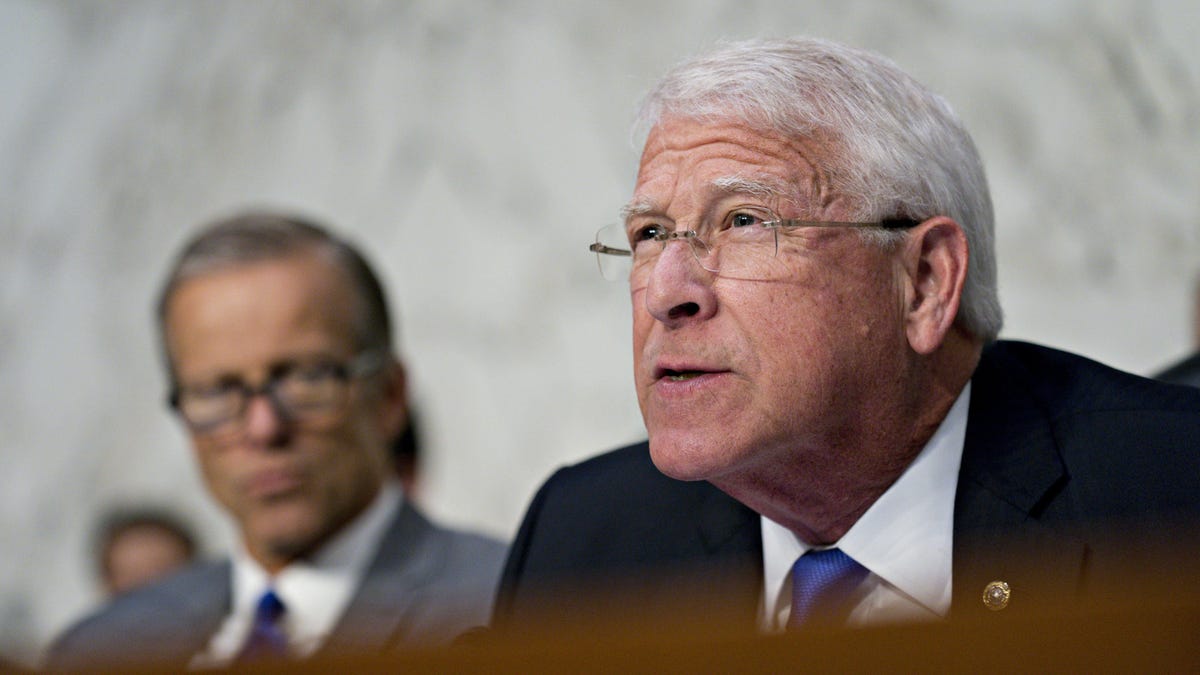Facebook, Google, Twitter CEOs may be subpoenaed to testify before Senate
A hearing will address the legal liability protections under Section 230 that shield tech companies from lawsuits for content that users post.

Sen. Roger Wicker, a Republican from Mississippi and chairman of the Senate Commerce, Science and Transportation Committee, may subpoena tech CEOs to appear before the committee to discuss Section 230 protections.
The chief executives of Facebook, Google and Twitter could face subpoenas if they don't comply by Thursday evening to a request to appear before the Senate Commerce Committee on Oct. 1, according to a report by Politico.
Sen. Roger Wicker, a Republican from Mississippi and the chairman of the Senate Commerce Committee indicated in an email Wednesday to committee staff that requests had been sent to the companies and that if the committee didn't receive an affirmative response, it would issue subpoenas, Politico said.
The short timeline for such a high profile panel is unusual. It's possible other committee members may object to the subpoenas, or that the companies may be able to negotiate some other arrangement with the committee.
Facebook, Google and Twitter didn't respond to requests for comment on the news.
The committee is asking Google's Sundar Pichai, Facebook's Mark Zuckerberg and Twitter's Jack Dorsey to appear before it to discuss liability protections their companies have under Section 230 of the Communications Decency Act. The statute, passed in 1996, shields online companies from liability for their users' posts. It also allows them to moderate posts and remove harmful content without facing repercussions from lawsuits.
The tech industry credits Section 230 with enabling online platforms to flourish in the early days of the internet. But as the influence and size of companies like Twitter and Facebook have grown, lawmakers on both sides of the political aisle have questioned whether more regulation is needed to rein in their power.
Democrats are troubled by the rampant flow of hate speech and of disinformation, including interference by foreign countries in the 2020 US presidential election. Former Vice President Jo Biden, the Democratic party's presidential nominee, has called for the Section 230 protections to be revoked entirely. Other senior members of the party, including Speaker of the House Nancy Pelosi and Sen. Richard Blumenthal, have taken more-nuanced approaches, suggesting revisions or updates to the law.
Republicans, led by Trump, allege that their speech is being censored by Twitter, Facebook and other social media sites. There's no evidence the allegation is true, and the companies strongly deny the claim.
In May, Trump signed an executive order asking the Federal Communications Commission, which has never regulated online content companies, to reinterpret the statute and use Section 230 as a means to do just that. The executive order followed Twitter's decision to place labels on two Trump tweets about mail-in voting, saying they contained "potentially misleading information."
Republican lawmakers have also introduced legislation to amend Sec. 230, including a bill from Sen. Josh Hawley, a Republican from Missouri, that would require companies to prove a "duty of good faith" in their content moderation in order to receive Section 230 protections. Republican Sens. Marco Rubio, Mike Braun and Tom Cotton co-sponsored the legislation.
On Wednesday, the Department of Justice proposed legislation that would limit the legal liability protections for social media companies, like Facebook, Google and Twitter, and hold them accountable for how they moderate content on their platforms.
The Trump administration met Wednesday with Republican state attorneys general to discuss ways to crack down on social media and tech companies.

